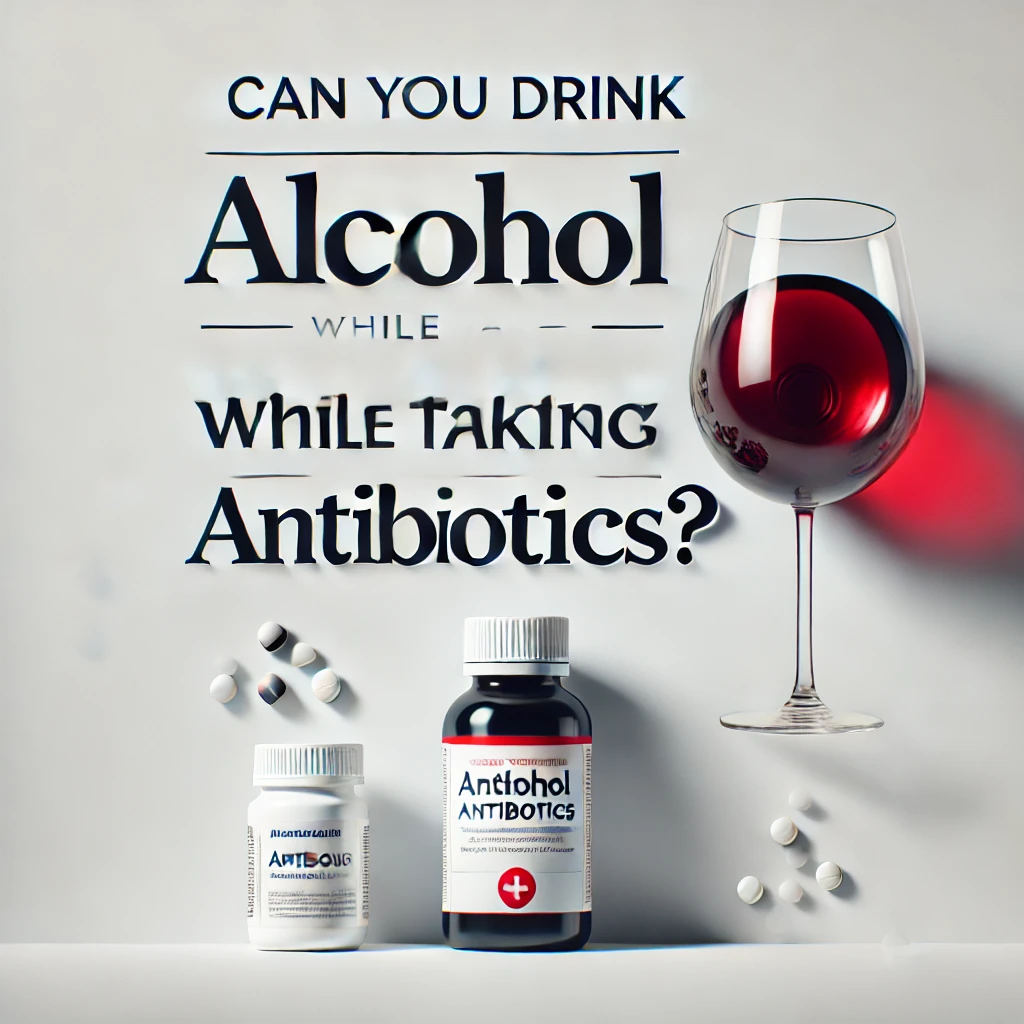When prescribed antibiotics, many wonder, “Can you drink on antibiotics?” While a common myth suggests alcohol should never be mixed with these medications, the reality is more complex. It’s essential to understand the potential interactions between alcohol and antibiotics to ensure safety and effective treatment.
Why Alcohol and Antibiotics Don’t Always Mix
Certain antibiotics can interact with alcohol, intensifying side effects like nausea, dizziness, and drowsiness. For some people, drinking alcohol while on antibiotics may increase these unpleasant effects, making it uncomfortable and unsafe.
Some antibiotics are also less effective when mixed with alcohol, which can delay recovery. So, if you’re asking “Can you drink alcohol while taking antibiotics?” the answer varies depending on the specific medication.
Which Antibiotics Are Safe with Alcohol?
While certain antibiotics react poorly with alcohol, others are less affected. For example, commonly prescribed antibiotics like amoxicillin generally don’t have severe interactions with alcohol. If you’re wondering “Can I drink on amoxicillin?”. Well, moderate alcohol consumption is generally safe, but drinking too much can still interfere with your body’s healing process and overall energy levels.

Antibiotics That Should Not Be Combined with Alcohol
Some antibiotics are known to cause severe reactions when combined with alcohol. These include:
- Metronidazole
- Tinidazole
- Cephalosporins,
They can lead to symptoms such as headache, nausea, flushing, and an increased heart rate.
For these types of antibiotics, avoiding alcohol completely is necessary. If you are prescribed any of these, you should delay alcohol consumption until at least 48 hours after completing your medication course to prevent adverse reactions.
Potential Side Effects of Mixing Alcohol with Antibiotics
Mixing alcohol with antibiotics can lead to side effects that range from mild to severe. Common issues include:
- Increased drowsiness or dizziness
- Nausea and vomiting
- Diarrhea or digestive discomfort
- Flushing or headache
Alcohol can also strain your liver, which is busy metabolizing antibiotics. This can increase the risk of liver damage, especially if you’re taking antibiotics that are already hard on the liver. Therefore, when asking “Can you drink alcohol while taking antibiotics?” it’s wise to check with your doctor.
How Alcohol Affects the Immune System While on Antibiotics
Alcohol weakens the immune system, making it harder for your body to fight off infections. Even if the antibiotic doesn’t directly interact with alcohol, drinking can slow your recovery. Antibiotics work best when your immune system is strong, and alcohol consumption with antibiotics can hinder this process.
How Long After Taking Antibiotics Can You Drink Alcohol?
If you’re considering having a drink after finishing antibiotics, it’s best to wait a day or two. This allows your body to fully process the medication. Some antibiotics have a longer half-life, meaning they stay in your system longer. Waiting 48 hours is a safe rule for most antibiotics, but your doctor or pharmacist can provide more specific guidance.
How Long After Taking Ibuprofen Can You Drink Alcohol?
If you’re on medications like ibuprofen in addition to antibiotics, exercise caution with alcohol. While ibuprofen is not an antibiotic, combining it with alcohol increases the risk of gastrointestinal issues, like stomach ulcers. Ideally, wait at least 6-8 hours after taking ibuprofen before consuming alcohol. Mixing ibuprofen with alcohol over a prolonged period can cause liver or kidney damage.
Safe Drinking Practices While on Antibiotics
If you decide to drink while taking an antibiotic that doesn’t have a direct alcohol interaction, keep a few guidelines in mind:
- Limit Consumption
Moderation is key. A single drink may be fine, but binge drinking should be avoided as it can hinder the healing process.
- Hydrate Well
Drinking alcohol can cause dehydration, so make sure to stay hydrated to help your body process both the alcohol and the antibiotic.
- Avoid Mixing with Other Medications
If you’re taking pain relievers or other medications, alcohol can increase the risk of negative reactions.
The Bottom Line: Can You Drink on Antibiotics?
The answer to “Can you drink alcohol while taking antibiotics?” is: it depends. For antibiotics without major alcohol interactions, limited consumption may be fine but always check with your healthcare provider. Avoid drinking entirely if you’re on antibiotics like metronidazole or tinidazole to prevent adverse effects. Moreover, consider waiting a few days after finishing your antibiotics to allow your body to fully recover before reintroducing alcohol.
Consult Your Doctor for Personalized Advice
When in doubt, consult your doctor or pharmacist about any potential interactions between alcohol and antibiotics. Whether it’s “Can I drink on amoxicillin?” or another antibiotic, healthcare professionals can help you make informed decisions for your safety and well-being.
In conclusion, though not all antibiotics react with alcohol, it is better safe than sorry. Alcohol consumption with antibiotics can be tricky, and understanding the specifics of your prescription will help you avoid unwanted side effects and achieve a quicker recovery.
We hope this blog was informative for you guys. For more such informative content stay connected with Submit-blog. Moreover, you can publish your guest post on our site or write for us, so feel free to contact us in this regard.








